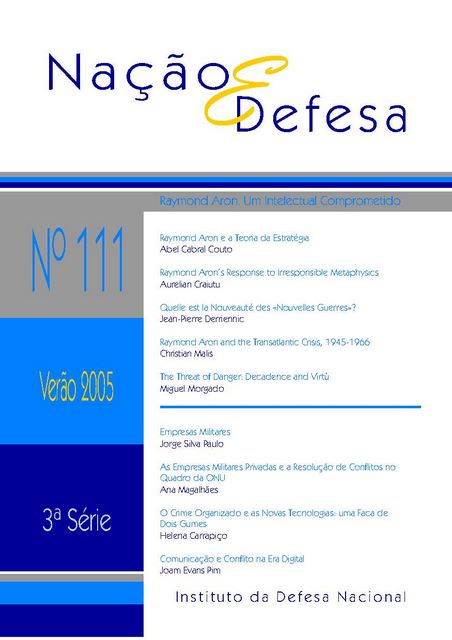Raymond Aron and the Transatlantic Crisis, 1945 1966
Abstract
To analyze Aron’s perception of transatlantic crisis between 1945 and 1966, focus must be put on three main transatlantic “pommes de discorde” during this period – the issue of German rearmament (1945-1954), the Suez crisis (1956), the Great Nuclear Debate (1959-1964). Aron had from the onstart been favourable to rearming Germany, despite French official long reluctance, mainly because he thought it unescapable for Europe’s military defense, and because treating Germany as a true ally was the best way to avoid Germany get closer to the USSR to obtain reunification. That’s why he finally, after long hesitation, backed EDC, thus opposing to de Gaulle. Suez actually widened the gap between Aron and de Gaulle, and in Aron’s case this discrepancy is rooted in very deep analysis not only of France’s role in the transatlantic game, but also of the nature of nuclear weapons. Aron drew from the Suez Crisis several lessons: 1 – “the unwritten alliance of the Two Superpowers against Total War” was more important, in the US view and practise, than solidarity with European allies. 2 – Massive retaliation strategy leaves the West disarmed against “secondary threats” at its borders. 3 – Atomic weapons wouldn’t suffice to restore former power of France or Great-Britain: a European effort is necessary. During the Great Nuclear Debate, the new French military policy, officially expressed by de Gaulle in his speech at the Ecole Militaire in November 1959, directed collided into Kennedy and McNamara renewed military policy and strategy. Aron tried to play the role of an ombudsman between Kennedy and de Gaulle, unsuccessfully: if he found military French doctrine of the “Force de frappe” anachronistic, and supported McNamara’s “flexible response”- strategy which restored the clausewitzian relation between strategy and politics, he also advocated sharing of nuclear technology by the US with its allies. Actually, Aron like de Gaulle pursued the aim to restore Europe’s strategic independence, the best mean in his mind to reach one day a negotiated settlement and the reunification of the Old Continent. But this goal seemed to him reachable only in the mid – or long term, and rather through European unification than purely national strategies.





